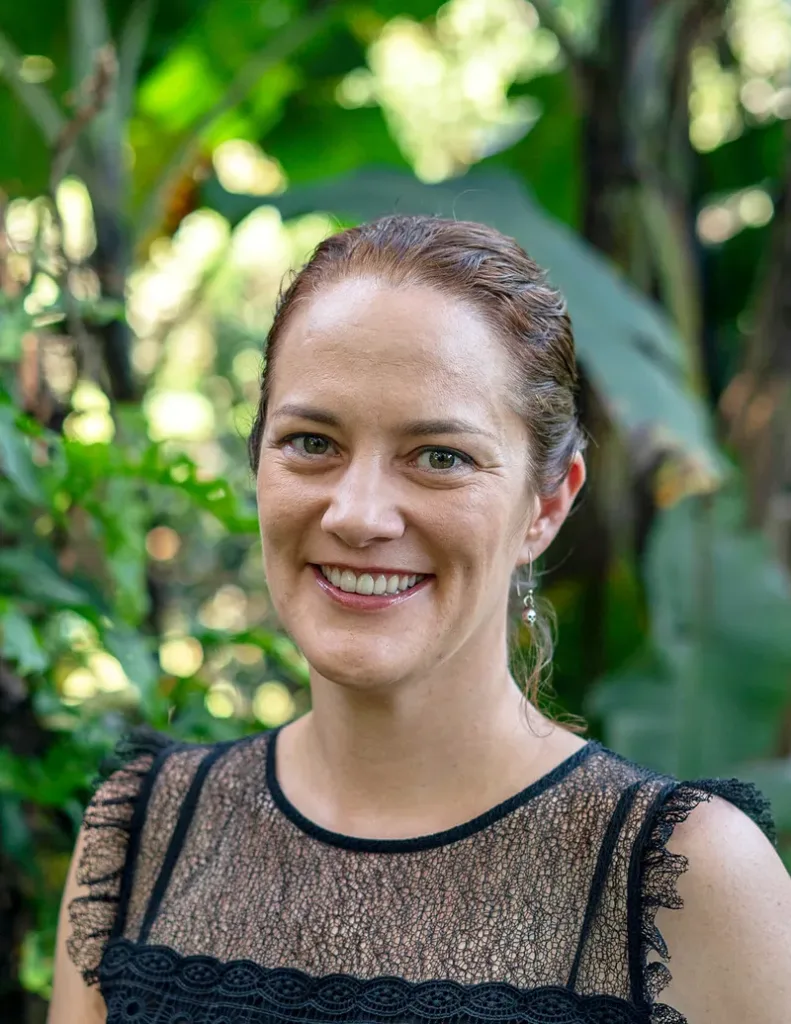Mary Little, LL.M.

Mary Little, LL.M.
Title
Location
Education
Teaching
about
Faculty Profile
Mary is a human rights lawyer and food security advocate that has been researching development and agrarian transitions in Costa Rica for 14 years. Mary began her career investigating alternative financing for rural women in China and working with domestic violence organizations in Japan. After finishing her Master’s degree in Human Rights Law at the University of Essex in England, she worked at the InterAmerican Court of Human Rights in San Jose, Costa Rica. She has also taught human development as a right, food security, sustainable tourism and social research methods. Her research explores community-driven waste solutions, responsible tourism and regenerative food initiatives.
Mary is a Ph.D. candidate at the Nations-mandated University for Peace in Costa Rica. Her research focuses on the links between tourism and food security in Monteverde by assessing how community efforts have impacted food availability and access since Covid-19. Recently Mary has been leading related fieldwork on the intersection of food justice and tourism in the Monteverde region of Costa Rica. This research revolves around themes of social solidarity economies including a community crypto-currency, community gardens, local food sourcing, and farm-to-farm training.
Areas of Expertise
- Climate change perception and mitigation
- Environmental justice
- Social impact assessment
- Tourism and resource management
- Food security
- Agroecology
Research Projects
The research conducted at SFS field stations is designed to answer key questions related to critical and related social and environmental problems and to provide our hosts with detailed and accurate information for decision making and action. Faculty and student research projects are linked to the Center’s Five-Year Research Plan, which defines an overarching research directive.
Project I: Impact of Tourism on Water Issues on the Nicoya Peninsula
The Pacific Coast town of Santa Teresa has transitioned from an economy of farming and fishing to a tourism-driven economy. Located in a dry tropical zone, this growth has placed pressure on local water resources. The focus of this investigation was to assess the water practices of local businesses to identify willingness to participate in sustainable practices, what practices were underway and the obstacles businesses faced when trying to address waste water issues. Our recommendations included community knowledge sharing on biogardens and proper septic maintenance and the creation of a local bio-digester to process cooking grease into gas, a project that is now underway.
Project II: Tourism Communities and Multi-stakeholder Responses to Waste Management
This study looks specifically at the social-environmental interface in relation to waste management solutions in the context of tourism communities in the Nicoya Peninsula of Costa Rica. The possibilities and weaknesses of public/private partnership in generating a recycling program are explored. The roles of trust, locally developed rules and common cause are examined as foundations of social capital and delivering environmental dividends.
Project III: Sustainable Community Tourism Expansion near Carara National Park
This investigation was created to expand the understanding of community-based tourism activities near Carara National Park. The objectives include determining what tourism activities already exist, others the community would like to develop, obstacles to development and means by which communities can strengthen local tourism, ideally with the assistance of the Park.
Outputs:
Report on local restaurant and hotel water treatment practices to area stakeholders, including Nicoya Peninsula Waterkeeper and MaisPais/Santa Teresa Chamber of Tourism.
Report on Sustainable Tourism Opportunities Near Carara National Park
“Reduce and Recycle to Remain Relevant in Global Tourism”, Tico Times, Oct. 10, 2016
“Streamside Plants as a Solution to Pollution” Sophia Ryan and Mary Little, The Dirt Road, January 2017
Project IV: Community-based initiatives to promote food security through regenerative tourism in Monteverde, Costa Rica
Project V: Localized Tourism and Food Security in Monteverde
Rural communities, such as Monteverde, have faced rapid and intense tourism growth over the past 30 years. Like nearly all areas that rely on tourism, Monteverde was severely impacted by Covid-19 travel bans. As tourism returns, the community is implementing programs to diversify sources of income and enhance local food security. These initiatives include a community crypto-currency, community gardens, and a network to connect customers with local farmers. This research focuses on collaboration with local partner organizations to gather data that facilitates a better understanding of community members’ needs, participation in food initiatives, and whether these projects enhance food security.
outputs
Publications
Little, Mary and Emily Blau. (2019). Social adaptation and climate mitigation through agrotourism: A case study of tourism in Mastatal, Costa Rica. Journal of Ecotourism
Little, M. (2018). Innovative Recycling Solutions to Waste Management Challenge in Costa Rican Tourism Communities. Journal of Environmental and Tourism Analyses, 5(1). (pp 33-52).
Avalos, G., A. Häger, E. Arévalo, M. Little, & K. Goodall. (2017). El Centro de Estudios sobre Desarrollo Sostenible, un modelo de educación en el extranjero con una huella positiva en Costa Rica. Ambientico 264. (pp 4-12).
Little, M. (in press). Enhanced Food Security through Localised Community Crypto-Currency: Experiences of a Costa Rica Tourism Town. In F. Higgins Desbiolles and B. Biggby (Ed.) Reorienting Tourism. London: Channel View Press.
Little, M., and Sylvester, O. (2022). Agroecological producers shortening food chains during Covid-19: opportunities and challenges in Costa Rica. Agric Hum Values. https://doi.org/10.1007/s10460-022-10298-2
Häger, A., Little, M., Amel, E. & Calderón, G. (2021). By wasting the coffee fruit, we waste opportunities: Transformational experiences from a shade-grown coffee farm in Atenas, Costa Rica. Case Studies in the Environment, 5(1), 1227777. doi: 10.1525/cse.2021.1227777
Sylvester, O. and Little, M. (2020). “I came all this way to receive training, and now I am going to be taught by a woman.” Factors that support and hinder women’s participation in agroecology in Costa Rica. Accepted for publication by the Journal of the Agriculture, Food, and Human Values Society.
Little, M. and Sylvester, O. (2019). Mujeres agricultoras retando los estereotipos de género en Costa Rica (Costa Rican women in agricultura challenge gender steriotypes). Revista Agroecología, Issue 4.